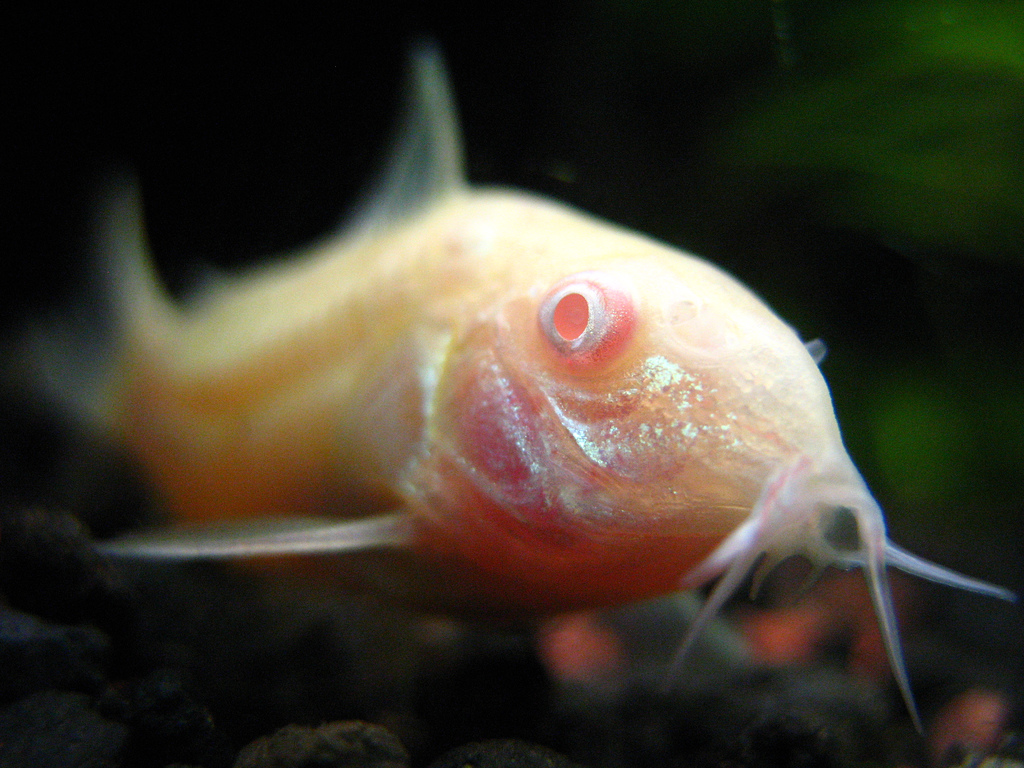So you are thinking about getting a buddy for your betta fish? With all the options, selecting a tankmate for your betta can be a daunting task. There is so much to consider. Here is our list of the top 7 things to consider when selecting a tankmate for your betta.
1. Betta’s Temperment – There is a reason they are not called Siamese Cuddle Fish. Fighting fish are naturally territorial and pack a big bite in their little mouth. Avoid fish that bettas have been known to show aggression toward like guppies and platies, which have fragile flowy fins as well as gourami’s and paradise fish (the anabantoid cousins to the betta), which sometimes bettas confuse for another Fighting fish. Remember too, that bettas like to stick anything and everything in their mouth. Avoid fish that are very small and may be mistaken as a snack like young neon tetras or dwarf puffers.
2. Tankmates’ Temperment – Even though bettas are tough on the front-end, they have very fragile flowing fins (ask anybody who has tried to cure their Fighter from fin rot) and shouldn’t be housed with fish that are known fin nippers. The list of nippy fish is too long to list here but a few examples of fish to avoid are angelfish, rainbow sharks, cichlids, and some species of tetra.
3. Aquarium Size – Bettas are frequently housed in small aquariums less than 10 gallons. When selecting a tankmate for your betta consider the adult size of the other fish. Plecos are frequently chosen as tankmates because they are docile bottom-dwellers. Most are sold as juveniles, however, and many species will require a minimum of 50 gallons as they reach adulthood.
4. Aquarium Shape – Some fish swim along in a straight line, some zig-zag all around, others are bottom or surface dwellers exclusively, while still others explore the entire water column. Bettas love to venture into every nook and corner of their aquarium, but because they surface for air, generally prefer an aquarium that is not too deep and offers ledges and vegetation to rest on near the surface. Some fish, like Angelfish are taller than they are long and thrive in a narrower aquarium where they have room to stretch their fins and swim vertically.
5. Preferred pH – Bettas are hardy fish that can survive in a variety of pH levels so long as they are stable. That said, bettas do prefer water that is neutral (pH 7.0) to slightly acidic. Some fish prefer alkaline water, like many livebearers. This is not to say these fish can never be housed together, it’s just something to consider if you want your fish to thrive.
6. Temperature – Bettas are tropical fish and require warm water (about 78 F.) to stay healthy and active. Bettas should only be housed with other tropical fish and never with cold water fish like goldfish.
7. Filtration – Bettas are rare in that they can often survive in a well maintained fish bowl without filtration. Most other fish and crustaceans will quickly succumb in an uncycled tank without a filter. If you are considering a tankmate for your betta we encourage you to set-up a proper aquarium with a filter. Your betta will appreciate it too.
So you didn’t think we’d give you this big scary list without at least a few suggestions did you? Some tankmates that might work with your betta are; ghost shrimp, apple snails, neon tetras, African dwarf frogs, otocinclus catfish, coridoras, loaches, and white cloud minnows. Of course, individuals vary. We always recommend having a back-up plan (i.e. spare tank, close friend) in case tankmates need to be separated.

Albino Cory Catfish Photo by Sapienssolutions
mam what betta eats
man what kind betta is that
that’s not a betta, that’s an albino cory catfish
Hmmm. I was trying to show a photo of a common betta tank-mate. Didn’t realize I was going to cause confusion. LOL. 😀
I have a 2(used to be 3) emerald green catfish(commonly mistaken as a cory) with my Betta in a 10 gallon tank and they get along beautifully. Of course, when they were first introduced, he nipped each of them a couple of times but stopped a few hours later. Now, he will even mimic their behavior and swim at the bottom of the tank, scavenging for food. It’s so cute. I also have a mystery snail, that minds its own business and is not bothered(he also keeps the tank SUPER clean). I definitively recommend these docile tank mates for bettas, but make sure you have enough room for 3 corys because they stress out really easily when they are alone.
Um? How about a 2 gallon 360 view tank? Can i have a mate its more for me than him lol
I have a male beta Valintine he has been alone for about a year and he hasn’t eaten much food when I go him of course I thought that was normal so he only eats 1 to 3 pellets a day altogether, I found out this is not normal so I got shrimp and started with small amounts of shrimp and pellets he still won’t eat 🙁 and I think he is depressed so I am planning to get him tank mates what kind should I get I was thinking one or two zebra snails and mabey a few mountain minnow what should I do?? Please help I am very worried about my poor Valintine